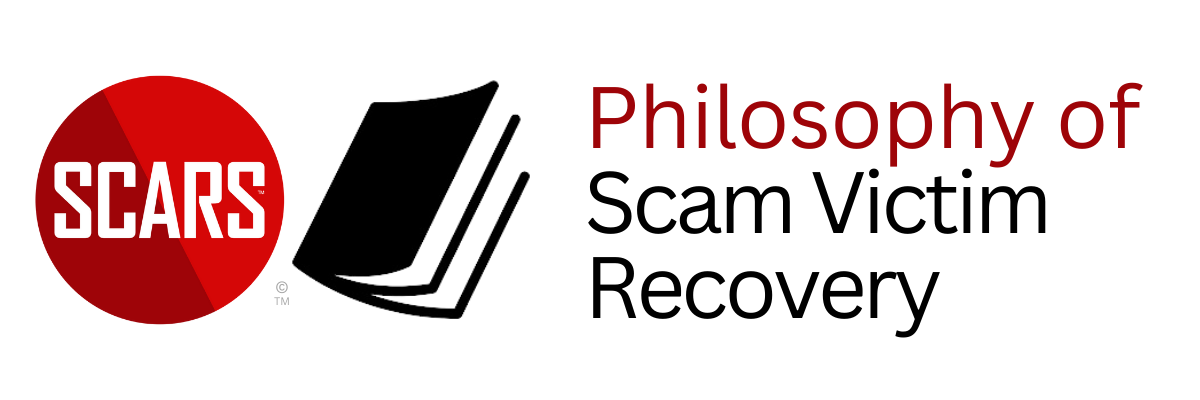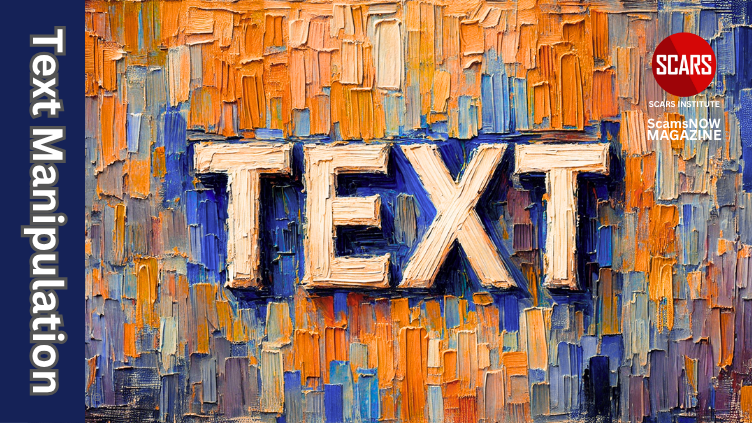‘Maitri’ – Loving Kindness in Buddhist Philosophy Applied to Scam Victims
Maitri is Loving Kindness or Benevolence towards Yourself and Others – of Vital Importance for Scam Victims and Victims’ Advocates
Primary Category: Scam Victim Recovery Philosophy
Author:
• Tim McGuinness, Ph.D., DFin, MCPO, MAnth – Anthropologist, Scientist, Polymath, Director of the Society of Citizens Against Relationship Scams Inc.
About This Article
Maitrī, the Buddhist practice of loving-kindness, offers scam victims and their advocates a practical, compassionate foundation for emotional recovery and resilience. Victims often struggle with self-blame, shame, and isolation after betrayal, and Maitrī provides a disciplined approach to replace these patterns with self-compassion and acceptance. Through daily practice, victims can rebuild trust in themselves and gradually reengage with others without fear or cynicism. For advocates, Maitrī sustains patience and empathy, helping them maintain emotional balance while supporting others. When combined with gratitude, it strengthens emotional resilience and fosters deeper healing. Maitrī shifts the recovery process from mere survival to genuine growth, addressing not only external damages but also the internal wounds that require careful and intentional healing. It provides a path for victims and advocates alike to restore dignity, trust, and connection in a world that often feels fractured by betrayal.
Note: This article is intended for informational purposes and does not replace professional medical advice. If you are experiencing distress, please consult a qualified mental health professional.

Maitri is Loving Kindness or Benevolence towards Yourself and Others – of Vital Importance for Scam Victims and Victims’ Advocates
In Buddhist philosophy, Maitrī (often spelled Metta in Pali) is the concept of “loving-kindness” or “benevolence.”
Maitrī is a foundational virtue in Buddhism, closely associated with compassion (karuṇā), sympathetic joy (muditā), and equanimity (upekkhā). These four qualities are known together as the Brahmavihāras or “Four Immeasurables,” which are states of mind that are cultivated to develop greater spiritual well-being and to diminish anger, hatred, and selfishness.
Maitrī involves the unconditional wish for all beings to be happy and free from suffering. It is an attitude that transcends mere sentimental affection; it is a disciplined, boundless goodwill directed toward all beings, without expectation of personal benefit. In Buddhist practice, Maitrī is often cultivated through meditation exercises, known as Metta Bhavana (development of loving-kindness), where the practitioner systematically extends thoughts of kindness to oneself, loved ones, neutral individuals, difficult individuals, and eventually all beings.
Maitrī represents the deliberate cultivation of loving-kindness and universal benevolence, a core aspect of the path to awakening in Buddhist thought.
How Maitri Can Be of Value to Scam Victims
Maitrī, the Buddhist principle of loving-kindness, can offer significant value to scam victims as they navigate the difficult path of emotional recovery. Scam experiences often leave victims with deep feelings of betrayal, shame, and self-criticism. These emotions can harden into lasting wounds if not addressed with care and patience. Maitrī encourages a shift away from self-condemnation toward a compassionate regard for oneself, fostering an internal environment where healing becomes possible.
At its core, Maitrī involves the cultivation of unconditional kindness, first directed toward oneself and then extended outward to others. For scam victims, practicing Maitrī helps interrupt the habitual patterns of self-blame and judgment that often arise after the deception is uncovered. Rather than viewing oneself through the harsh lens of failure or weakness, Maitrī teaches acceptance of one’s vulnerability without harsh critique. Recognizing that being deceived does not diminish one’s worth allows a more balanced, compassionate perspective to emerge.
Further, Maitrī can help victims rebuild trust in their own judgment. By fostering a gentle, non-critical attitude toward their experiences, victims can begin to see the scam not as a reflection of personal inadequacy but as a human misstep in a world where manipulation is sophisticated and pervasive. This mindset does not excuse the scam but helps place it in a wider context, reducing the emotional burden of guilt and self-hatred.
Extending Maitrī outward toward others, including even those who have caused harm, is more advanced and not immediately necessary. However, it can eventually help victims release lingering anger and resentment that may otherwise prolong their suffering. By practicing loving-kindness, victims can focus their energy on rebuilding their lives, relationships, and sense of self without being trapped by past betrayal.
In this way, Maitrī provides scam victims with a disciplined emotional practice. It is not mere positive thinking; it is an intentional, ongoing cultivation of kindness that addresses the real emotional wounds left behind. Through it, victims can rebuild resilience, self-acceptance, and a gradual return to emotional balance.
Practice and Cultivate Maitri
Practicing and cultivating Maitrī, loving-kindness, is a process that scam victims and advocates can integrate into their healing and support work. For victims, Maitrī offers a way to counteract the shame, anger, and isolation that often follow a scam experience. For advocates, it provides a grounded emotional foundation from which to offer support without judgment or burnout.
Scam victims can begin practicing Maitrī by intentionally directing kind and compassionate thoughts toward themselves. One simple practice is to sit quietly and repeat phrases such as, “May I be safe. May I be free from suffering. May I be kind to myself.” This can be difficult at first, especially when the mind is dominated by self-blame or regret. However, with regular repetition, the practice gradually softens internal criticism and builds a more forgiving self-view. Victims are not asked to dismiss the harm they suffered or the real consequences of the scam. Rather, Maitrī encourages them to see their humanity clearly and to respond to their pain with gentleness instead of harsh judgment.
This is supported by the SCARS Institute Affirmations:
- I am a survivor
- It was not my fault
- I am not alone
- I am worthy – Axios
- I am stronger than I know
- This is truth – Vera
Mindfulness meditation also supports the cultivation of Maitrī. Scam victims can benefit from sitting with their feelings of shame, grief, or anger without trying to suppress or deny them. By acknowledging these emotions and treating them as passing states rather than fixed identities, victims create space for self-compassion. They learn that while they cannot change the past, they can choose how to treat themselves in the present.
Scam victims can deepen their Maitrī practice through community. Group meditation, reflective discussion, or even quiet moments shared in support groups can strengthen the sense of connectedness that Maitrī fosters. Victims realize they are not alone in their suffering. Advocates reinforce the understanding that they are part of a larger mission to bring kindness and healing into a difficult space.
Over time, the regular cultivation of Maitrī changes not only the way individuals relate to themselves but also how they relate to the world. For scam victims, it builds resilience, allowing them to recover without hardening their hearts against future connection. F
Through intentional, daily practice, Maitrī becomes not just an idea but a living force in the recovery journey, one that nourishes strength, dignity, and genuine emotional healing.
Maitri and Gratitude
Maitrī (loving-kindness) and gratitude are distinct practices, but they share important connections that can mutually reinforce emotional healing, especially for scam victims and advocates.
Maitrī is the deliberate cultivation of unconditional goodwill toward oneself and others. It focuses on developing a stable attitude of kindness that does not depend on circumstances or the behavior of others. Gratitude, by contrast, is the practice of recognizing and appreciating positive elements in one’s life, relationships, experiences, moments of peace, even amid hardship. While Maitrī directs a consistent flow of goodwill outward and inward, gratitude draws attention inward to what is already present and beneficial, encouraging acknowledgment and appreciation.
For scam victims, integrating Maitrī with gratitude can be powerful. After betrayal and loss, it is natural for a victim’s inner world to fill with anger, mistrust, and despair. Maitrī offers a way to soften the inner response, creating a foundation of kindness toward the self. Gratitude builds on that foundation by focusing attention on what remains untouched by the scam, the capacity for growth, the presence of supportive relationships, or even small daily comforts. While Maitrī says, “May I be kind to myself,” gratitude says, “I see the good that still exists.” Together, they interrupt the cycles of bitterness and isolation.
In practice, a victim might begin with a short session of Maitrī meditation, offering kind wishes for themselves: “May I heal. May I find peace.” Afterward, they could shift to a gratitude reflection, identifying two or three things they are thankful for, even in the midst of their pain. Over time, this combined practice strengthens emotional resilience, fostering both self-compassion and a sense of abundance, however small.
The key difference is that Maitrī is proactive and unconditional, it is offered freely without needing a reason. Gratitude is responsive, it arises from recognition of specific positives. Together, they form a balanced emotional practice: Maitrī keeps the heart open; gratitude keeps the heart nourished.
For scam victims rebuilding trust in themselves and in the world, and for advocates walking alongside them, the integration of Maitrī and gratitude can turn recovery from mere survival into a deeper, more sustainable path toward emotional well-being.
Maitri and Recovery
Maitrī, the Buddhist practice of loving-kindness, holds particular relevance in the recovery journey of scam victims. Scam victimization often leaves behind a landscape of emotional devastation: self-blame, anger, mistrust, and profound loss. Many victims struggle not only with what was taken from them materially but with a collapse in self-worth and trust. In this fragile state, Maitrī can serve as a foundation for healing by offering a structured way to cultivate self-compassion and emotional stability.
At its core, Maitrī asks individuals to extend unconditional kindness toward themselves. For scam victims, this is a radical shift. Recovery often stalls when self-criticism dominates, reinforcing the mistaken belief that being scammed reflects a personal flaw. Maitrī provides a method to counteract this narrative. By intentionally offering oneself phrases such as “May I be safe” or “May I find peace,” victims slowly dismantle the harsh inner judgment that prevents healing. They learn to relate to their suffering not as a verdict on their worth but as a condition worthy of compassion.
Scam recovery is also deeply tied to trust, the ability to trust oneself again and eventually to trust others. Maitrī supports the rebuilding of trust by fostering a nonjudgmental relationship with one’s own emotions and experiences. As victims practice loving-kindness toward themselves, they begin to accept that vulnerability is not a weakness but a shared human experience. This acceptance opens the door to rebuilding external relationships without the heavy armor of fear or cynicism.
Practicing Maitrī is not a passive act. It requires daily effort, often beginning with small steps: offering kind wishes during moments of distress, reframing thoughts of self-blame into words of encouragement, and gradually expanding this goodwill toward others. In the early stages, a scam victim may focus solely on themselves, as self-directed Maitrī strengthens emotional resilience. Over time, as healing progresses, the practice can extend outward, allowing victims to reconnect with others, rebuild supportive relationships, and engage in the world without the paralyzing fear of future betrayal.
Maitrī also guards against the emotional isolation that often follows scam trauma. Many victims withdraw out of shame or fear of judgment. By practicing loving-kindness, they reinforce their inherent worthiness of connection and support, creating the internal conditions necessary for seeking help, whether through therapy, support groups, or trusted friends and family.
Maitrī is not merely a meditation practice for scam victims. It is a practical approach to restoring the emotional integrity that scams often fracture. It offers a path to move from self-blame to self-compassion, from isolation to connection, and from fear to cautious, grounded trust. In the difficult journey of scam recovery, Maitrī provides not just relief but a resilient foundation for a renewed sense of self and a healthier engagement with the world.
Maitri and Advocates
Advocates can also cultivate Maitrī as part of their work with scam victims. Working closely with individuals who have suffered profound emotional and financial losses can be draining and sometimes frustrating. Maitrī helps advocates maintain patience and empathy, even when victims struggle with shame, denial, or anger. Advocates can practice silent loving-kindness toward those they support, mentally repeating, “May you find healing. May you be free from suffering.” This silent offering of goodwill supports a nonjudgmental, compassionate presence, allowing victims to feel seen and heard without fear of blame.
Another important practice for advocates is extending Maitrī toward themselves. Emotional exhaustion is a real risk in this kind of work. By setting clear boundaries and engaging in regular self-care, advocates respect their own emotional needs. Maitrī reminds them that compassion must include themselves as well as the victims they serve. Without self-directed kindness, advocates risk becoming overwhelmed or cynical, undermining their ability to help effectively.
For advocates, integrating Maitrī and gratitude guards against compassion fatigue. Offering loving-kindness helps advocates maintain patience and goodwill toward victims who may be struggling. Practicing gratitude reminds advocates of the meaningful impact their work can have and cultivates a sense of appreciation for the opportunity to support recovery. Gratitude prevents cynicism; Maitrī sustains compassion.
For advocates and support professionals working with scam victims, introducing Maitrī as a recovery tool offers a compassionate, non-invasive method to assist victims in regaining emotional footing. Rather than focusing solely on external restitution or legal outcomes, Maitrī addresses the internal damage, the invisible wounds that, if left unattended, can fester into long-term emotional suffering.
Conclusion
Maitrī stands as a powerful, necessary practice for both scam victims and the advocates who support them. In the wake of betrayal, loss, and emotional upheaval, many victims find themselves trapped in cycles of self-blame, shame, and isolation. Maitrī offers a way to counter these destructive patterns through the deliberate cultivation of loving-kindness toward oneself and others. It helps victims rebuild self-trust, soften the harsh inner narratives, and find a pathway back to emotional equilibrium without hardening against future relationships or opportunities for growth.
For advocates, Maitrī serves as a critical tool for maintaining compassion, patience, and resilience in a demanding field. By extending kindness to themselves as well as to those they serve, advocates protect their emotional well-being, reducing the risk of burnout and sustaining their capacity to offer meaningful support. When combined with practices like gratitude, Maitrī creates a balanced emotional environment that fosters healing for both victims and those walking alongside them.
Incorporating Maitrī into scam recovery efforts shifts the focus from mere survival to deeper healing. It addresses not only the external losses but the internal wounds that often go unseen and untreated. Through consistent practice, victims and advocates alike can nurture resilience, cultivate dignity, and move toward a renewed sense of wholeness and connection. Maitrī, with its roots in timeless wisdom, provides a practical and compassionate foundation for recovery, growth, and lasting emotional health in the aftermath of profound personal violation.
More About Maitri
-/ 30 /-
What do you think about this?
Please share your thoughts in a comment below!
One Comment
Leave A Comment
Important Information for New Scam Victims
- Please visit www.ScamVictimsSupport.org – a SCARS Website for New Scam Victims & Sextortion Victims.
- SCARS Institute now offers its free, safe, and private Scam Survivor’s Support Community at www.SCARScommunity.org – this is not on a social media platform, it is our own safe & secure platform created by the SCARS Institute especially for scam victims & survivors.
- SCARS Institute now offers a free recovery learning program at www.SCARSeducation.org.
- Please visit www.ScamPsychology.org – to more fully understand the psychological concepts involved in scams and scam victim recovery.
If you are looking for local trauma counselors, please visit counseling.AgainstScams.org
If you need to speak with someone now, you can dial 988 or find phone numbers for crisis hotlines all around the world here: www.opencounseling.com/suicide-hotlines
Statement About Victim Blaming
Some of our articles discuss various aspects of victims. This is both about better understanding victims (the science of victimology) and their behaviors and psychology. This helps us to educate victims/survivors about why these crimes happened and not to blame themselves, better develop recovery programs, and help victims avoid scams in the future. At times, this may sound like blaming the victim, but it does not blame scam victims; we are simply explaining the hows and whys of the experience victims have.
These articles, about the Psychology of Scams or Victim Psychology – meaning that all humans have psychological or cognitive characteristics in common that can either be exploited or work against us – help us all to understand the unique challenges victims face before, during, and after scams, fraud, or cybercrimes. These sometimes talk about some of the vulnerabilities the scammers exploit. Victims rarely have control of them or are even aware of them, until something like a scam happens, and then they can learn how their mind works and how to overcome these mechanisms.
Articles like these help victims and others understand these processes and how to help prevent them from being exploited again or to help them recover more easily by understanding their post-scam behaviors. Learn more about the Psychology of Scams at www.ScamPsychology.org
SCARS INSTITUTE RESOURCES:
If You Have Been Victimized By A Scam Or Cybercrime
♦ If you are a victim of scams, go to www.ScamVictimsSupport.org for real knowledge and help
♦ SCARS Institute now offers its free, safe, and private Scam Survivor’s Support Community at www.SCARScommunity.org/register – this is not on a social media platform, it is our own safe & secure platform created by the SCARS Institute especially for scam victims & survivors.
♦ Enroll in SCARS Scam Survivor’s School now at www.SCARSeducation.org
♦ To report criminals, visit https://reporting.AgainstScams.org – we will NEVER give your data to money recovery companies like some do!
♦ Follow us and find our podcasts, webinars, and helpful videos on YouTube: https://www.youtube.com/@RomancescamsNowcom
♦ Learn about the Psychology of Scams at www.ScamPsychology.org
♦ Dig deeper into the reality of scams, fraud, and cybercrime at www.ScamsNOW.com and www.RomanceScamsNOW.com
♦ Scam Survivor’s Stories: www.ScamSurvivorStories.org
♦ For Scam Victim Advocates visit www.ScamVictimsAdvocates.org
♦ See more scammer photos on www.ScammerPhotos.com
You can also find the SCARS Institute’s knowledge and information on Facebook, Instagram, X, LinkedIn, and TruthSocial
Psychology Disclaimer:
All articles about psychology and the human brain on this website are for information & education only
The information provided in this and other SCARS articles are intended for educational and self-help purposes only and should not be construed as a substitute for professional therapy or counseling.
Note about Mindfulness: Mindfulness practices have the potential to create psychological distress for some individuals. Please consult a mental health professional or experienced meditation instructor for guidance should you encounter difficulties.
While any self-help techniques outlined herein may be beneficial for scam victims seeking to recover from their experience and move towards recovery, it is important to consult with a qualified mental health professional before initiating any course of action. Each individual’s experience and needs are unique, and what works for one person may not be suitable for another.
Additionally, any approach may not be appropriate for individuals with certain pre-existing mental health conditions or trauma histories. It is advisable to seek guidance from a licensed therapist or counselor who can provide personalized support, guidance, and treatment tailored to your specific needs.
If you are experiencing significant distress or emotional difficulties related to a scam or other traumatic event, please consult your doctor or mental health provider for appropriate care and support.
Also read our SCARS Institute Statement about Professional Care for Scam Victims – click here
If you are in crisis, feeling desperate, or in despair, please call 988 or your local crisis hotline – international numbers here.
More ScamsNOW.com Articles
A Question of Trust
At the SCARS Institute, we invite you to do your own research on the topics we speak about and publish. Our team investigates the subject being discussed, especially when it comes to understanding the scam victims-survivors’ experience. You can do Google searches, but in many cases, you will have to wade through scientific papers and studies. However, remember that biases and perspectives matter and influence the outcome. Regardless, we encourage you to explore these topics as thoroughly as you can for your own awareness.















![NavyLogo@4x-81[1] Maitri - Loving Kindness in Buddhist Philosophy Applied to Scam Victims - 2025](https://scamsnow.com/wp-content/uploads/2025/04/NavyLogo@4x-811.png)









![scars-institute[1] Maitri - Loving Kindness in Buddhist Philosophy Applied to Scam Victims - 2025](https://scamsnow.com/wp-content/uploads/2025/04/scars-institute1.png)

![niprc1.png1_-150×1501-1[1] Maitri - Loving Kindness in Buddhist Philosophy Applied to Scam Victims - 2025](https://scamsnow.com/wp-content/uploads/2025/04/niprc1.png1_-150x1501-11.webp)
I loved this article. I will take any and all suggestions on how to be kinder to myself so I can, eventually, extend that kindness to others. One thing I’ve learned on the journey of recovery is to find and express gratitude for even the smallest things, every day. I will now add a small Maitri session to my routine and build on it over time. “May I be safe; May I be free from suffering; May I be kind to myself”
I’ve written these down to refer to, starting today. “Maitrī keeps the heart open; gratitude keeps the heart nourished.”
Also appreciated the video at the bottom of the article. The explanation of how we deal with pain in our lives is something everyone should listen to.